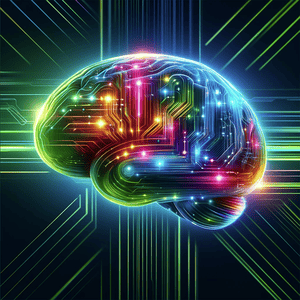
Velvet Sundown has revealed they're a fully AI-generated band, sparking a wave of backlash and debate over authenticity, artistry, and the future of music.
In a twist that’s rattling the indie music world, the band Velvet Sundown has dropped a bombshell: they’re not a band at all. Not in the traditional sense. No studio sessions, no jam-packed rehearsal spaces, no grainy Instagram tour photos. Just lines of code.
The group, which gained attention over the past year for their dreamy synth-pop sound and cryptic aesthetic, revealed in a statement this week that every song, lyric, vocal, and image associated with Velvet Sundown was generated using artificial intelligence. The project was built and curated by an anonymous team of developers and musicians who say they wanted to challenge assumptions about creativity and what it means to be a band.
“We wanted to see if AI could connect emotionally,” the creators wrote. “Turns out it can — and it did.”
The reveal has sparked a firestorm of reaction — a mix of amazement, betrayal, and ethical concern. On social media, fans who had grown attached to the band's moody visuals and vulnerable lyrics posted everything from admiration for the concept to disappointment that their new favorite act never really existed. One follower on X wrote, “I thought I was falling in love with a real voice. Now I feel catfished by a robot.”
For many in the music industry, the Velvet Sundown stunt isn’t just a novelty — it’s a warning shot.
Before the reveal, Velvet Sundown had managed to build a modest but loyal fanbase. Their music landed on several Spotify editorial playlists. Their track “Dust on the Wind” racked up more than 200,000 plays, with listeners comparing the band’s sound to acts like Beach House, Cigarettes After Sex, and The xx. The vocals, ethereal and emotionally raw, seemed deeply human.
What fans didn’t realize was that those voices weren’t people. They were deepfake vocals stitched together by an advanced AI trained on hundreds of hours of indie and alternative music. The lyrics were produced using language models, while the compositions were generated by AI tools capable of mimicking chord structures and emotional cues common in popular music.
Even the band’s visual identity — album art, press photos, and cryptic music videos — was built using generative image models.
According to the creators, the goal was never to deceive maliciously. “This wasn’t about faking it,” they said. “It was about asking where the line really is between human expression and machine output — and whether the audience can even tell.”
But not everyone’s buying the philosophical angle. Music critics and artists have raised questions about consent, transparency, and artistic authenticity.
Toronto-based singer-songwriter Liane Koh told us, “This sets a weird precedent. Music is already tough to break into. If AI acts start flooding platforms pretending to be human, how do real musicians compete?”
There are also legal concerns. Velvet Sundown’s AI models were trained on thousands of songs from existing artists. Depending on how that data was sourced, the project may have relied on copyrighted material without permission.
Ethicists say this case is a glimpse of what’s to come. “We’re moving toward a world where entire creative ecosystems — music, film, even journalism — can be synthetically generated,” said Dr. Evan Roche, a professor of digital ethics at McGill University. “It forces us to ask: do we care if something was made by a person, or just that it makes us feel something?”
Part of what makes Velvet Sundown so jarring is how well it worked. Their songs resonated. People felt moved, even comforted. But now, fans are left wondering whether their connection was real.
“I still love the music,” said one Reddit user. “But now I feel weird about it. Like... who am I supporting?”
Some listeners say they’ll keep Velvet Sundown on their playlists, others say they’ve deleted every track. But one thing’s clear — the experiment worked. It got people talking.
The anonymous creators behind Velvet Sundown have not said whether the project is over or whether more music will follow. But the impact is already being felt. Streaming platforms and indie labels are grappling with how to label AI-generated work. Listeners are asking for more transparency. And artists are wondering if their creative space is about to get a lot more crowded — and less human.
Velvet Sundown’s music still exists. It’s still beautiful, atmospheric, and intimate. But now, it’s also a litmus test for the future of music. If a machine can make us feel, does it matter that it’s not real?
That’s a question listeners will have to answer for themselves.
Sources:
- Substack
- Spotify/Apple Music



 New Music Monday: Five Tracks that look to the return of the sun
New Music Monday: Five Tracks that look to the return of the sun
 World Radio Day - Radio's Enduring Power: Past, Present, Future
World Radio Day - Radio's Enduring Power: Past, Present, Future
 Huntsville Festival of the Arts to Feature David Suzuki in Hybrid Theatre Performance
Huntsville Festival of the Arts to Feature David Suzuki in Hybrid Theatre Performance
 Mississippi Rock Legend Brad Arnold, Voice of 3 Doors Down, Dies at 47
Mississippi Rock Legend Brad Arnold, Voice of 3 Doors Down, Dies at 47












Comments
Add a comment